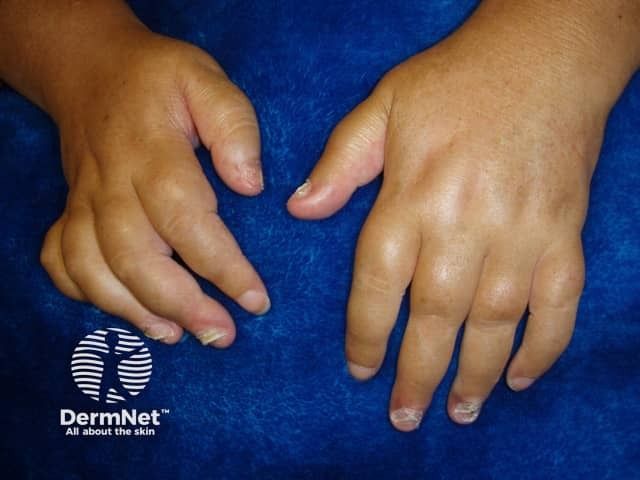- Case-Based Roundtable
- General Dermatology
- Eczema
- Chronic Hand Eczema
- Alopecia
- Aesthetics
- Vitiligo
- COVID-19
- Actinic Keratosis
- Precision Medicine and Biologics
- Rare Disease
- Wound Care
- Rosacea
- Psoriasis
- Psoriatic Arthritis
- Atopic Dermatitis
- Melasma
- NP and PA
- Skin Cancer
- Hidradenitis Suppurativa
- Drug Watch
- Pigmentary Disorders
- Acne
- Pediatric Dermatology
- Practice Management
- Prurigo Nodularis
- Buy-and-Bill
Article
Overcome overconfidence: Don't let clinical errors cause misdiagnosis
Errors in clinical practice tend to occur when least expected, but some of the key factors that tend to cause them - systems problems and simple overconfidence, can be expected in any practice that's been around long enough to start taking things for granted.

Key Points

Physicians can take some key steps to avoid overlooking important data or diagnostic clues, says Robert Brodell, M.D., professor of internal medicine and clinical professor of dermatopathology in pathology at Northeastern Ohio Universities College of Medicine, Rootstown, Ohio, and associate clinical professor of dermatology, Case Western Reserve University School of Medicine, Cleveland.
Dr. Brodell says he has learned some important lessons from more than 20 years of experience, and offers the following suggestions for preventing errors or misdiagnoses:
The first response when patients don't show up for appointments may be frustration over lost time and money, but doctors should also make sure to stay on top of the no-show patient's condition.
"(Practices) need to have a system for going through 'no show' charts at the end of each day," Dr. Brodell tells Dermatology Times. "You don't want to find out that an Accutane patient who missed an appointment is pregnant months later. Your options may be fewer at that point."
Track lab reports
Keep strict track of lab reports and act on them immediately to prevent them from becoming buried in a sea of other tasks.
"Put your initials on all lab reports when they arrive, and make sure that nothing gets filed without them," Dr. Brodell emphasizes. "If a melanoma lab report comes into the office, for instance, you want to act on it right away. Don't wait for the report to be put aside or to be filed, and avoid the possibility of the patient misunderstanding and failing to keep a follow-up appointment.
"You really can't take a chance of the patient not getting the result and information needed to make an informed clinical decision," he adds.
Nonresponse to eczema treatment? It may look and feel like eczema, but so do plenty of other things. Consider the options, Dr. Brodell says.
"Don't be overconfident. Consider the full differential diagnosis, especially if an eczema patient is not responding to treatment," he says.
Don't rely on the pathology report
The pathology report may carry the weight of third-party, objective evidence, and it may be a big piece of the puzzle, but it's not the only piece of the puzzle, Dr. Brodell says.
"Never assume that pathology is the gold standard," he says. "Your clinical-pathologic correlation is the only gold standard, and if a pathology report does not correlate with the clinical information at your disposal, you need to rethink the situation.
"For instance, an inflamed compound nevus reported by your dermatopathologist that demonstrated the A-B-C-D-E's of melanoma needs looked at again," he adds.





